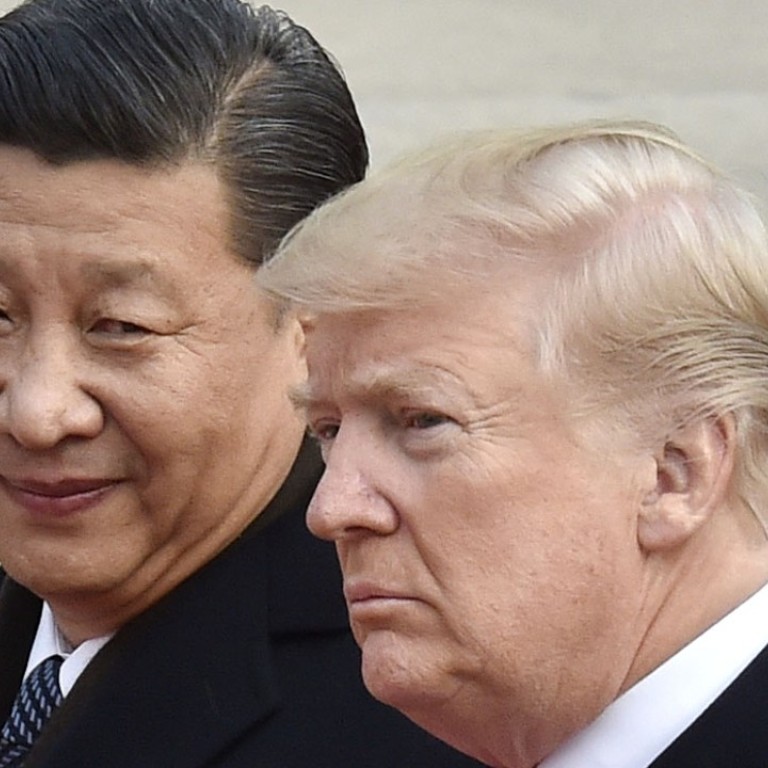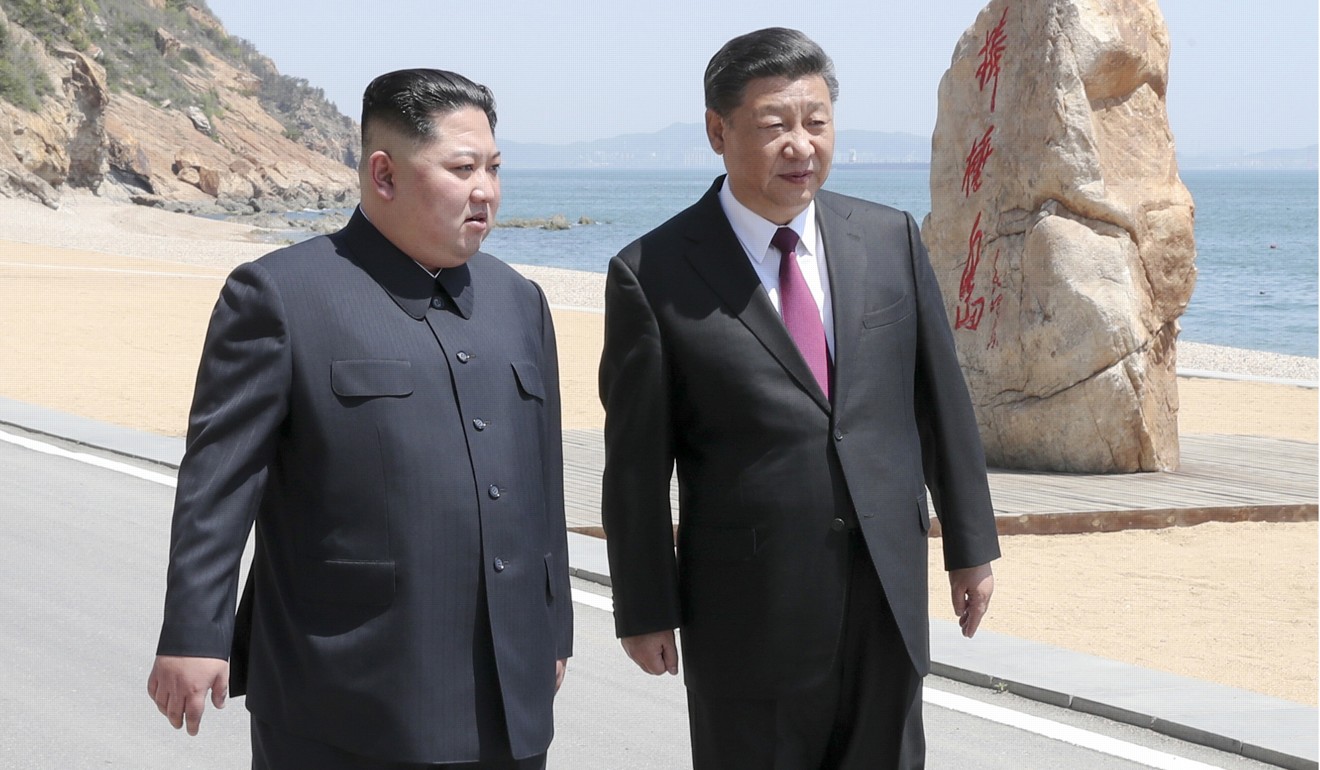
Donald Trump calls Xi Jinping for trade result that ‘benefits American businesses’
While the US president pushed the America-first view, China’s leader called for continued communication to achieve a ‘mutually beneficial’ result
Trade talks between the US and China must lead to an outcome that “benefits American businesses and workers”, US President Donald Trump told his counterpart, Xi Jinping, in a call on Tuesday.
Xi in turn called for continued communication during their escalating trade dispute to achieve a “mutually beneficial” result rather than a much-dreaded trade war.
China ‘wants to talk about cutting trade deficit with US’
The call - which also addressed diplomatic breakthroughs regarding North Korea – came amid a flurry of bilateral diplomatic activity aimed at averting disruption to the world’s largest trade relationship, as well as signs that trade flows might have already been curtailed.
Trump “affirmed his commitment to ensuring that the trade and investment relationship between the United States and China is balanced and benefits American businesses and workers”, according to a readout of the call provided by the White House.
Washington’s bottom line seems to be ending China’s industrial policy and I see virtually no way Beijing is going to agree to that
Xi, meanwhile, said that “the teams of both sides can maintain communication and strive to find a solution to the problems that exist, so as to achieve mutually beneficial and win-win results”, according to a report in Chinese state media.
US Treasury Secretary Steven Mnuchin last week led a delegation of seven top economic advisers, including Commerce Secretary Wilbur Ross and White House trade adviser Peter Navarro, to Beijing for a two-day visit with a team of Chinese counterparts led by Vice-Premier Liu He.
The two sides laid out their demands at the meeting, but no agreement or consensus was reached. Talks will resume next week when Liu visits Washington.
China’s vice-premier will visit Washington in bid to avert a trade war
Some analysts, including David Lampton, professor and director of China Studies at Johns Hopkins SAIS and the former president of the National Committee on US-China Relations, have said the close timing of the high-level bilateral talks is cause for optimism, but that Beijing will not likely concede on at least one important US demand.
Mnuchin’s delegation last week asked their counterparts to halt subsidies for industries under Beijing’s “Made in China 2025” plan, an initiative involving state-financed support for advanced technologies in aerospace, medicine, robotics and other industries.
“With Liu coming again to Washington, it is encouraging that the two sides find something to talk about after the loggerheads visit of the Americans to China last week,” Lampton told the South China Morning Post.
The main barriers to a US-China trade deal
“Nonetheless, Washington’s bottom line seems to be ending China’s industrial policy and I see virtually no way Beijing is going to agree to that. The Trump administration is aiming at the core of the China model.”
Mnuchin’s team also asked China to cut its US trade surplus by at least US$200 billion by the end of 2020 and not resort to retaliatory measures against Washington.
Stakes in the negotiations are high. Each side has announced tariffs to be levied on US$50 billion worth of annual imports from the other, and Trump has threatened to target an additional US$100 billion of Chinese imports.
Chinese buyers have not made any major soybean purchases in about three weeks, which is a longer period than usual, Associated Press reported, citing Dan Basse, president of AgResource, an agricultural research and advisory firm.
At the same time, farmers in China are being encouraged to plant more soy, apparently to help make up for any shortfall from the United States, the AP report said.
Soybeans are the largest single commodity the US sells to China in terms of value. At US$14 billion, they accounted for about 9.2 per cent of the US’s total 2017 exports to China, and nearly three quarters of the value of its agricultural product exports to the Asian country.
The escalation began as an effort by Trump to reverse the trend of rising trade deficits the US has with China, which hit a record US$375 billion in 2017 and has continued rising this year.

US Trade Representative Robert Lighthizer, who was in Beijing as part of Mnuchin’s delegation to Beijing last week, will need to decide whether to delay implementing the tariffs on Chinese goods, revise the list of targeted products or proceed as announced after a period of public comment ends on May 22.
On North Korea, both sides reiterated the need to denuclearise the country.
Talking the way to calm trade war tension, says JPMorgan chief
“Xi Jinping reiterated China’s position on the Korean Peninsula issue and emphasised that China supports the US and [North Korea] leaders’ meetings,” according to the state-owned China News Service.
“China is willing to continue to play an active role in realising the denuclearisation of the peninsula and the long-term stability of the region.”
Also on Tuesday, Kim Jong-un made his second surprise visit to China in just over a month, in another sign of warming relations between the two communist states just weeks ahead of Kim’s planned meeting with Trump.
Kim Jong-un is China’s ‘mystery guest’ in surprise summit
“The two leaders discussed issues of mutual interest, including recent developments on the Korean peninsula and President Xi’s meeting today with North Korean leader Kim Jong-un,” according to the White House announcement.
“President Trump and President Xi agreed on the importance of continued implementation of sanctions on North Korea until it permanently dismantles its nuclear and missile programmes.”

